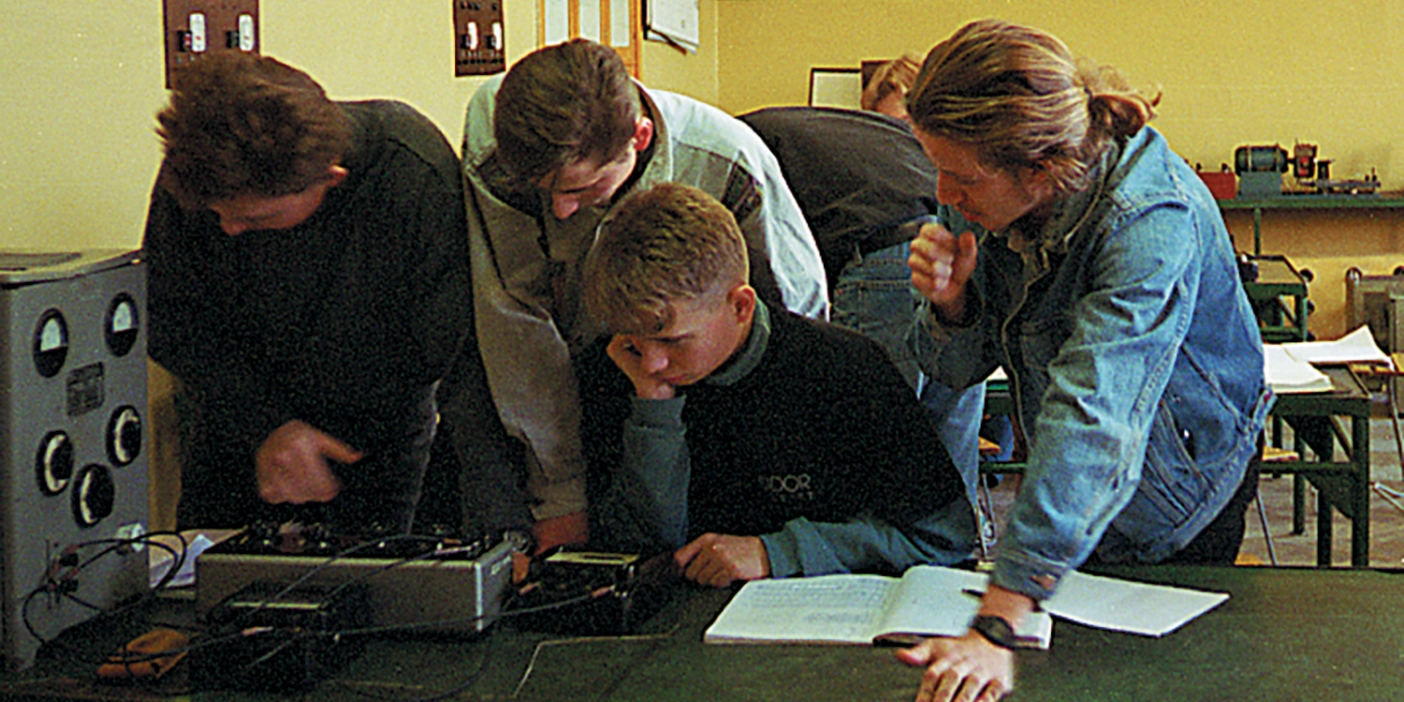By Grant Madsen
In a class where law students learn how to serve their communities, BYU law professor David Dominguez is trying to do the seemingly impossible–give people a reason to like lawyers.
“As a group, we’ve unfortunately been thought of as sharks, parasites, and blood suckers. I show students that this perception doesn’t have to persist,” says Dominguez.
The semester-long course introduces students to the idea of “community lawyering”–using legal skills to identify and solve troubling community issues before they end up in litigation. The 24 students enrolled during winter semester 1999 worked on five separate issues: police and minority relations in south Provo, relations between landlords and college-age tenants, issues surrounding recent English-only legislation, a beautification project for a neighborhood south of BYU campus, and an abuse prevention project.
Malia Godfrey, a third-year law student from San Diego, has always had an interest in women’s issues. Looking for a way to prevent abuse, which often leads to divorce and custody hearings, Godfrey and fellow classmates chose to focus on providing parents with better family education.
“Instead of talking about abuse after it happens, we want to educate people about things they can do to strengthen their families before they end up in a courtroom,” says Godfrey.
In a profession notorious for cleaning up people’s messes, Dominguez admits community lawyering’s focus on prevention is a new concept for many. “It’s definitely a different way of looking at what a lawyer does,” he says. “I call it the ‘missing half’ of law practice.”
Students in the class are taught to use their advocacy skills to show people how to negotiate. They talk with community, neighborhood, and minority group leaders to set up negotiation meetings where interested parties can work together to solve their problems, says Dominguez. “Lawyers should foster discussion among dissenting parties and help them come to reasonable solutions,” he says, adding that the ultimate goal is to help community leaders become stronger communicators and facilitators.
Godfrey says the class has changed the way she perceives her future profession.
“The class has been very refreshing. It’s opened my eyes to a new way of looking at law,” she says, explaining that before the course, she thought post-law school volunteer efforts would merely involve filing motions and drafting documents for the underprivileged.
“Now I see there’s a lot more that I can do as a facilitator in the community,” says Godfrey. “I can confront problems before they loom out of control and wind up in the courtroom.”
In addition, Godfrey says community lawyering has the potential to change people’s image of lawyers. “When you tell people you’re in law school they laugh at you and tell you a lawyer joke,” she says. “Society has this perception that lawyers are always up to no good. I think community lawyering will go a long way toward changing that perception.”
Jennie Holman Blake from Salt Lake City, who also took the class in her third year of law school, says students should be required to take more classes that teach volunteering. “Law schools in general fail to teach students how to help their communities and how to cultivate understanding,” Blake says. “Lawyers could be society’s healers if they were trained properly.”
Perhaps the greatest benefit of the class is that it helps future lawyers remember the save-the-world sentiments they felt when applying to law school, Dominguez says. When asked why they want to become lawyers, many applicants write about service, he says. “One student will write that he wants to help people and alleviate human suffering. Another will say she wants to prevent injustice and cruelty. Most students enroll because they want to make some kind of difference.”
But even the noblest intentions can fade once students are faced with the rigors of law school and intense competition for top spots, says Dominguez. “Sadly, many students lose sight of the reasons they applied to law school in the first place.”
This is why on the first days of class the professor asks students to review their admission essays. Most, he says, are surprised to see how far they’ve moved from their original intentions. “Hopefully, as students reflect on where they’ve come and where they want to end up, the situation is remedied somewhat,” he says. “But the real change comes when they dig in and start helping the community.”
Dominguez, who practices what he preaches by regularly involving himself in race relations in Utah County, says that teaching the class has brought him a great deal of satisfaction. “There’s nothing quite like watching students’ souls come back to them.”









